Panagiotis Giannakis
(Παναγιώτης Γιαννάκης)
Thumb

Image Source
User Rating
Complete
 50%
50%Born
1959 (66 years old)
Birth Place
Position
Point Guard
Status
Coaching
Ethnicity
White
Team Number
Height
1.93 m (6 ft 4 in)
Weight
216 lb (98 kg)
Outfitter
Kit
Side
Agent
Wage Year
Player Cutout

Full Body Render

Sport
Team
_Retired Basketball
2nd Team
League
_No League Basketball
Creative Commons Artwork
Yes
Available in:
Panagiotis "Notis" Giannakis (Greek: Παναγιώτης "Νότης" Γιαννάκης, pronounced ; born January 1, 1959), alternatively spelled Panayiotis Yiannakis or Yannakis, is a former Greek professional basketball player and coach. He is considered to be one of the greatest sportspeople of Greece. He started his senior career at the age of just 13 at Ionikos Nikaias and after noticeable success, he achieved extraordinary success as a player with Aris Thessaloniki from 1984 to 1993, in partnership with Greek basketball's biggest star Nikos Galis along with the rest of the squad, while achieving victory as the national team captain in EuroBasket 1987 in Athens, Greece's first major tournament win in non-Olympic sport which, along with Aris' extraordinary success, cultivated the sport in the country. At the end of his career, he won the EuroLeague with Panathinaikos in 1996 As head coach, he most prominently led Greece to its second European trophy in EuroBasket 2005 at Serbia and Montenegro, where a team of new and talented stars shone brightest under the nurturship of Giannakis. He would repeat the success the next year, acquiring the silver medal at the 2006 FIBA World Championship in Japan, where the team most notably scored a decisive win against the USA stars of the NBA in the semi-final, which would be USMNBT's last loss in a tournament until 2019. However, Greece's arch rivals Spain would defeat Giannakis' team in the final, as they would do again in the semi-finals of the 2007 EuroBasket. Outside of the Greek national team, he would coach Greek clubs like Aris, where he had the most success as player, Olympiacos, where he achieved renewed success, and the China men's national basketball team. As a player, he was primarily a point guard, but he could also play at the shooting guard position. During his playing career, Giannakis was also widely-known under his nickname of "O Drákos" (Ο Δράκος), or "The Dragon" in English.
On February 3, 2008, Giannakis was chosen as one of the 50 Greatest EuroLeague Contributors, over the previous half-century, by EuroLeague Basketball's Experts Committee. In 2018, he was named one of the 101 Greats of European Basketball. In 2021, he was inducted into the FIBA Hall of Fame. In 2022, he was inducted into the Greek Basket League Hall of Fame.
A true floor general, Giannakis began his club basketball playing career in Greece, with Ionikos Nikaias. After that, he before moved to the Greek club Aris Thessaloniki, where he spent the most important part of his pro playing career. In Thessaloniki, he helped to lead "The Yellows" (Aris) to three consecutive EuroLeague Final Four appearances between 1988 and 1990, as well as to a FIBA European Cup (later renamed to Saporta Cup) title in 1993. In the summer of 1993, he was transferred to the Greek club Panionios Athens, and finally a year later, to the Greek club Panathinaikos Athens, with whom he won a EuroLeague championship in 1996.
Giannakis was, along with Nikos Galis, Panagiotis Fasoulas, and Fanis Christodoulou, one of the four main stars of the legendary late 1980s Greece men's national basketball team that put Greece on the world basketball map. He was Greece's team captain, when they won the gold medal at the EuroBasket of 1987, and were the silver-medalists at the same championship two years later. Furthermore, Giannakis was also an important member of the Greece men's national team, when they reached the EuroBasket's semifinals in 1993 and 1995, as well as the FIBA World Cup's semifinals in 1994.
After his playing career ended, Giannakis was the head coach of the Athenian professional club team, Maroussi Athens, which he led to the forefront of the Greek League. Giannakis was also the head coach of the Greek EuroLeague powerhouse Olympiacos Piraeus, which he led to the 2010 EuroLeague Final, and of the Greece men's national basketball team. Under Giannakis' guidance, the Greece men's national team won the gold medal at the 2005 EuroBasket, and the silver medal at the 2006 FIBA World Cup in Japan, where Greece upset Team USA, by a score of 101–95. He was also the head coach of the senior Chinese national team.![]()
![]()
Career Honours
Career Milestones
Former Youth Teams
Former Senior Teams

1972-1984 |

1979-1996 |

1984-1993 |

1993-1994 |

1994-1996 |
Former Club Staff

2001-2002 Manager |

2002-2006 Manager |

2008-2010 Manager |

2012-2013 Manager |

2017-2018 Manager |
Contracts
Fanart




Banner

None Found...
Other Links





